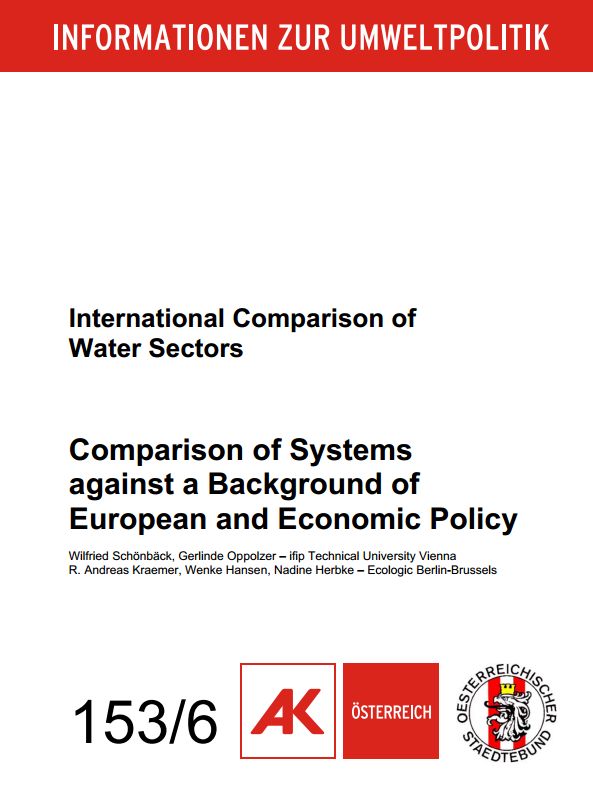On 15 October 2003, Wenke Hansen, Ecologic, one of the main authors of the comparative study on the international water sector presented some key messages of this study. On the occasion of the publication of the study in five volumes and the European Commission's Communication on the Internal Market Strategy the Austrian Federal Chamber of Labour (BAK) and the Austrian Association of Cities had invited to the event at the Permanent Representation of Austria to the European Union in Brussels "Liberalisation of water for Europe's citizens? – The Internal Market Strategy in the light of European experiences".
Municipal water companies in Austria have been criticised because of their resistance to innovation, their lack of cost consciousness and their limited flexibility. The critics view privatisation as a precedent to economic efficiency. The political discussion is influenced to a great extent by the interests and ideologies of the different actors in water services as well as by international and European developments in this area.
The debate concerning the best form of organisation in the water supply or sewage services can therefore only productively assist the solution finding process if it is based on a reliable and empirically sound information. Existing studies and data collections normally cover only certain aspects of the respective water management system, rather than system or network of systems as a whole. The situation in Austria has not yet been covered at all in several European comparative studies that have been conducted.
The study carried out in joint effort by the Institute of Public Finance and Infrastructure Policy (IFIP), Vienna University of Technology, and Ecologic, therefore provides a scientific and empirical analysis of Austrian and selected international systems for water services as a solid background for the current discussion about re-structuring and re-organising this sector in Austria. The vastly differing systems of water supply and sewerage services in Austria, France, England and Wales, as well as Germany and the Netherlands are analysed. The focus of the study is on the dominant organisational and enterprise structures. The analysis is carried out following economic, legal, qualitative, ecological and consumer-orientated criteria (different modules). The results are compared and interpreted horizontally (by theme). Based on the qualitative and descriptive evaluation of the different systems suggestions and conclusions are drawn concentrating on the current situation as well as further development perspectives for water services in Austria.
The study has been published in the series "Informationen zur Umweltpolitik" (no. 153) of the Austrian Federal Chamber of Labour and the Austrian Association of Cities.






